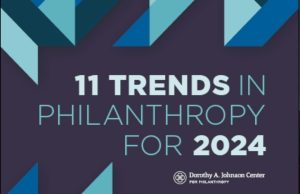Investors are optimistic about the economy although the outlook is slightly less rosy than it was in the last quarter of 2016, according to a poll of managers of endowments and foundations. Those surveyed are less worried about a slowdown in global growth but concerns have risen regarding geopolitics and political uncertainty.
More than half of respondents (57 percent) think the U.S. economy is in a better place compared to this time last year, up from 32 percent during the third quarter of 2016, according to the latest NEPC endowment and foundation poll for the first quarter of 2017. Some 64 percent said the economy was in a better place during the fourth quarter poll, which measures endowment and foundation views on the “economy, investing and key market trends.”
NEPC is an independent consulting firm providing asset allocation, manager search, performance evaluation, and investment policy services. The company serves 109 endowment and foundation retainer relationships, representing assets of $60 billion.
The greatest threat to investment performance for the near term is geopolitics and political uncertainty, according to 37 percent of respondents. A slowdown in global growth was cited as the greatest threat by 34 percent of respondents but significantly less than the 63 percent cited during the third quarter. Investors also are significantly less concerned about rising interest rates, global deflation and potential military conflict than they were in 2016.
“It seems that the use of passive management by most investors has stabilized, potentially because of geopolitical uncertainty and general concerns about the volatility of the market,” said Kristin Reynolds, partner in NEPC’s endowment and foundation practice.
Domestic equity is the most popular asset class to implement via passive management, with 93 percent of respondents already using passive management or considering it. Other asset classes cited as favorable for passive management included international equity (38 percent) and core fixed income (30 percent).
About 39 percent of respondents think emerging market equities will be the strongest-performing asset class this year, followed by domestic equities (23 percent) and international equities (16 percent).
Most of those surveyed do not plan to significantly change the use of passive management within the next 12 months but rather stay the course with current investing strategies. Slightly more than half of respondents said they plan to maintain their current exposure and one in five plan to increase it modestly. Only 7 percent plan to increase it substantially. While 14 percent said they are unsure, 8 percent said they plan to decrease it modestly or substantially.
Almost half said there has been no change in their use of passive investing in the last three years but 42 percent said that it has increased. Only 9 percent responded that it decreased.
Less than 10 percent of a portfolio was passively managed among 39 percent of respondents. More than a quarter of those surveyed said they had anywhere from 11 percent to 20 percent of their portfolio passively managed and one in five had more than 30 percent. About 15 percent said they had between 21 and 30 percent passively managed.
“Although many endowments and foundations have incorporated passive management into their portfolios, investors also recognize its limitations,” Reynolds said. “Passive management offers some compelling attributes but our survey results indicate that active management still plays a prominent role in investors’ portfolios,” she said.
The top reasons for using passive management are lower fees (34 percent) and poor active performance (26 percent). A much less popular reason (4 percent) was the inability to identify and hire strong active managers.











